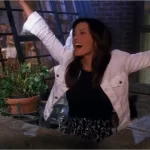House of Wild Cards, by Scott Nye
Blake Lively doesn’t automatically equal trouble, yet something I knew immediately in her opening voiceover that I was in trouble. Sexual without being sexy, she’s constantly trying to convince you otherwise in a series of poses (physical, vocal, or otherwise) usually the province of a frat-house Halloween party, with the almost abyssal emptiness to go with it. The decision to hang the story on her character, O, an outsider without an ounce of perspective in either direction, immediately disarms the film. It’s not without interest that O is sexually and emotionally (one hesitates to say “romantically”) involved with nice-guy Ben (Aaron Johnson) and bad-boy Chon (Taylor Kitsch), marijuana growers extraordinaire, and picks up their story immediately preceding an emotionally-charged drug war at which she is the center without every really centering anything, but it’s far from enough.
Director Oliver Stone, who co-wrote the screenplay with Don Winslow and Shane Salerno from Winslow’s novel, takes the predictable tack of using O as our gateway into this “world,” having her, through voiceover, introduce us to all the principal players while never actually revealing anything about any of them, herself included, and then dropping that facet entirely until late in the film, when more information needs to be conveyed. It’s a lot to hang on a character free of any interior life, and it’s a terrible introduction. That the film gets better from there is not high praise. Eventually, we’re free from charisma-vacuums Johnson and Kitsch and their terrible, self-congratulatory puns for a few seconds, getting to peer into a world with a semblance of life, in the forms of John Travolta, Benecio Del Toro, and Salma Hayek as the corrupt D.E.A. agent, his informant, and the informant’s kingpin. Dennis (Travolta), who keeps himself just dirty enough to have enough laundry to do the next day, quickly advises Ben and Chon to take a deal offered by Del Toro and Hayek’s Baja Cartel, lest they lose their heads (literally), but the boys aren’t quite ready for that kind of dependence.
That’s not good enough for Baja, who give the boys just enough time to reconsider to kidnap O to really get them to reconsider. After demanding untenable terms, the world’s least compelling drug war soon begins. It didn’t take me long to realize the film’s desire to make me like these people was not working, and that the best I could hope for was an all-out war of the douchebags, which, for a few brief, wondrous minutes, does actually happen. Stone’s perverse glee in his almost sadistic violence is at least compelling cinema, I’ll give him that, and it leaves one with the proper desire for a long shower. But in between rounds of bullets and “this is pretty fucked up right here” asides, all consideration for the effects of violence fade away in favor of some familial drama that never quite lands. Elena (Hayek) can’t connect with her college-age daughter, O has a disinterested mother, Dennis has a dying wife, and Ben and Chon have…well, from the looks of it, they pretty much have each other, and that’s working out okay. For guys who start out as our protagonists, the sheer magnetism of the ostensible villains is too powerful to concern oneself with the questions of morality the film is overly (pleased with itself for being) concerned with.
It is nice to see Stone more actively engaged with his material again. Wall Street: Money Never Sleeps and World Trade Center were almost insultingly faceless, a definite problem for a director whose best films exude righteous anger. W. was at least chasing something, but Stone hasn’t been this hungry since Alexander. Savages is thus lent a certain special exuberance, but it shares the complacency so prevalent in these last few films. The cinematography, by Dan Mindel, is undeniably gorgeous, and it’s refreshing to see the guy who shot Domino break free once again after years of serving the fast food line with J.J. Abrams and Disney. Stone undoubtedly hired him for “that Tony Scott look,” as that’s almost exactly what he gets here, but that “almost” is the difference between something genuinely alive and something animatronic. It’s imitation without foundation, attempting to create a chaos the film’s content cannot match.
The cast, and Stone, are at their best when they’re aiming for the rafters, Bad Boys II style, but are so desperate for their film to be about something that it becomes about nothing at all. As much as I root for these modest action flicks amidst king-sized myth-machines, this shares their central problem of trying to justify the carnal and visceral pleasures of cinema with so much meaning. The film lends its characters some last-second self-awareness that it could have used itself, instead taking a viewpoint exemplified in O’s narration, casually approaching a very frenetic life.




























